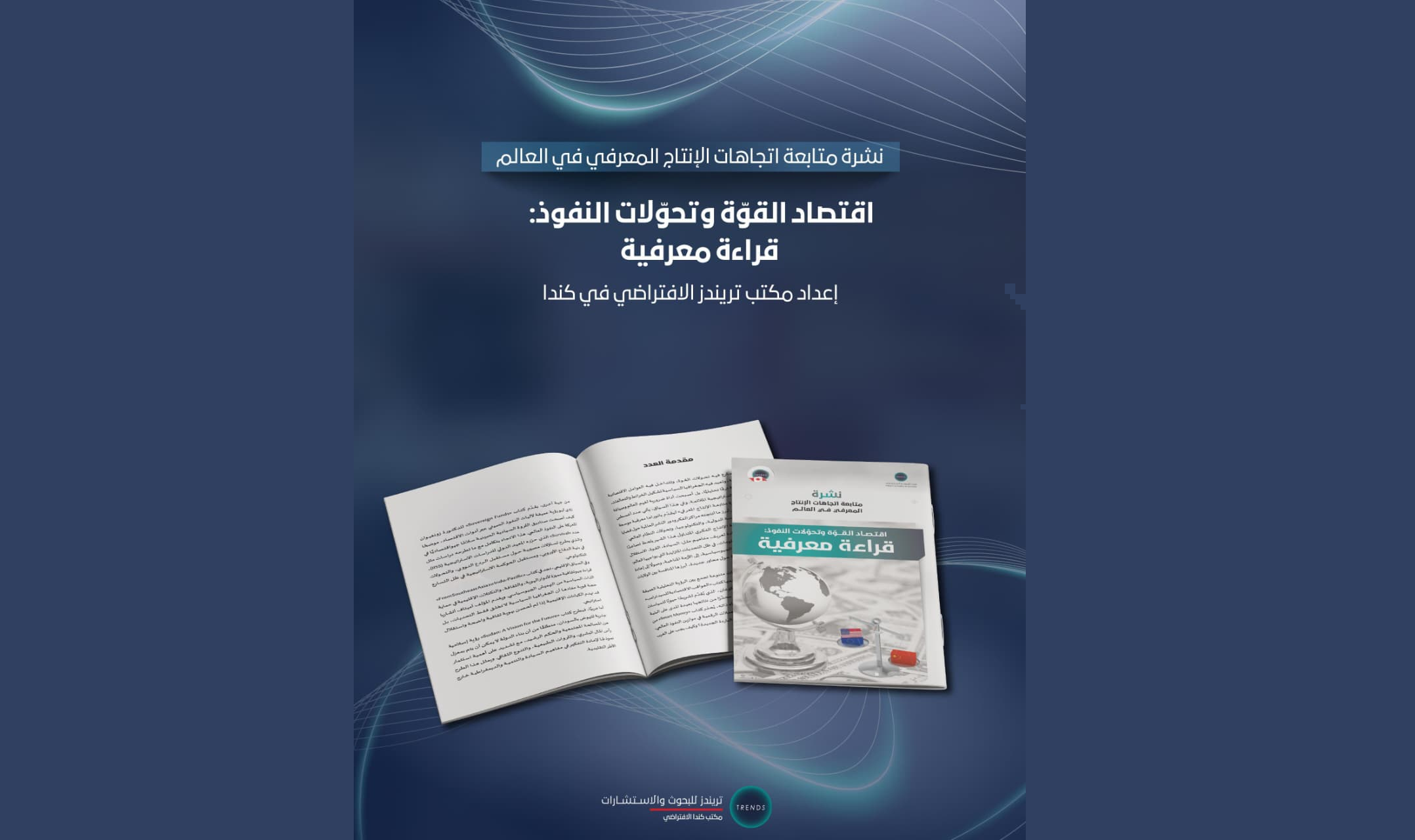Amid the accelerating pace of global geopolitical and economic transformations, TRENDS Research & Advisory’s Virtual Office in Canada has released the latest edition of the Worldwide Knowledge Production Monitoring Bulletin for August 2025. This edition sheds light on key intellectual publications analyzing the shifting dynamics of power and influence, with a particular focus on the strategic role of economy and technology as new instruments of competition.
In the introduction, supervised by Dr. Wael Saleh, Director of the TRENDS Virtual Office in Canada, and researchers Sara Al-Neyadi and Najla Al-Midfa, it was emphasized that knowledge is no longer an intellectual luxury but a vital tool for understanding global complexities and formulating strategic responses, especially amid the intensifying rivalry between the United States and China.
The edition covers several central themes, notably protectionism and the reshaping of the economic order. It reviews a book, The Economic Consequences of Mr. Trump, by journalist Philip Coggan, who warns that the protectionist policies adopted by the U.S. president have not only weakened the global trading system but also paved the way for the rise of economic nationalism, potentially leading to the long-term decline of American influence.
The bulletin also addresses China’s geo-economic contest. It highlights the book titled Sovereign Funds by Dr. Zongyuan Zoe Liu, which reveals how Chinese sovereign wealth funds have become a strategic instrument in the hands of the Communist Party. With investments exceeding $2 trillion, these funds bolster initiatives such as the Belt and Road Initiative and dominance in sectors like biotechnology and semiconductors.
Another focus is the digital revolution and financial influence, discussed through the book Smart Money, which warns that the “Digital Cold War” over central bank digital currencies (CBDCs) may define the future balance of power. It notes that China’s progress in this field threatens the dominance of the U.S. dollar, while the West lags.
The edition further explores the military future in the era of artificial intelligence through Anthony King’s AI, Automation, and War. The book challenges idealized perceptions of AI, arguing that it will not replace strategic human judgment but will enhance it through advanced data processing, thereby creating a new “military-technological complex.”
On the crises of democracy and trust, the bulletin highlights two European works. The first, Who Shapes Opinion? by Antoine Bristiel, analyzes how social media platforms and “infotainment” have eroded rational discourse and reinforced polarization. The second, The State is Heading Straight for the Wall by Anne-Laure Delatte, examines the erosion of citizen trust in the state, as it shifts from being a social actor to a technocratic entity serving the market.
Dr. Wael Saleh underlined that the convergence of economy, politics, technology, and identity within this edition demonstrates that understanding global transformations cannot be achieved from a single perspective. Knowledge has become intertwined, challenges interlinked, necessitating systematic monitoring that crosses disciplines, keeps pace with global intellectual production in real time, and deciphers it into insights accessible for analysis and exchange.
The edition also includes regional and forward-looking perspectives, such as Amitav Acharya’s work on the geopolitics of the Indo-Pacific, warning against the marginalization of Southeast Asian identities, and Sudan: A Vision for the Future, which argues that peace and reconciliation are the foundations of any reform.
The bulletin concludes by stressing that monitoring global knowledge production is not a peripheral task but a cornerstone of intellectual sovereignty and a key entry point for understanding upcoming challenges and shaping more proactive policies. It affirms that knowledge, when observed and analyzed, becomes power.



